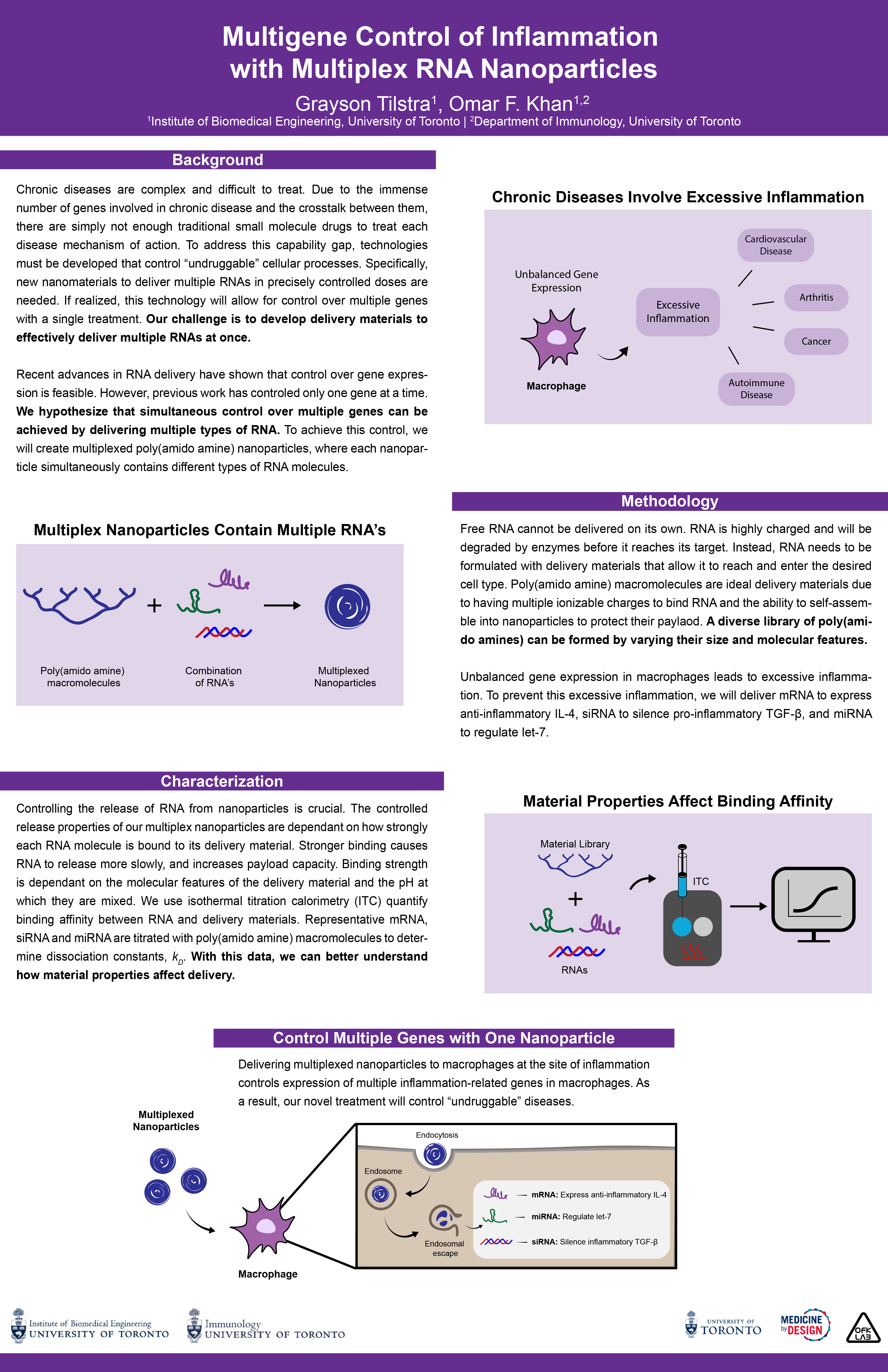Conference 2021 Poster Presentation
Project title
Multiplex RNA Delivery to Control Multiple Genes
Authors and Affiliations
Grayson Tilstra1, Omar F. Khan1,2
1. Institute of Biomedical Engineering, University of Toronto, Toronto, Canada
2. Department of Immunology, University of Toronto, Toronto, Canada
Abstract
Background
Chronic diseases are complex and difficult to treat. Due to the immense number of genes involved in chronic disease and the crosstalk between them, there are simply not enough traditional small molecule drugs to treat each disease mechanism of action. To address this capability gap, technologies must be developed that control “undruggable” cellular processes. Specifically, new nanomaterials to deliver RNA in precisely controlled doses and control multiple genes are needed. If realized, this technology will allow for new treatment options for complex, multigene diseases
Methods
Multiple genes of interest are controllable by the co-delivery of specific RNA molecules to cells. There are multiple types of RNA molecules, such as small interfering RNA (siRNA), micro RNA (miRNA), and messenger RNA (mRNA). Gene silencing is achieved by delivering siRNA, gene regulation by miRNA, and gene expression by mRNA. By combining several types of RNA into a single delivery package, multiple genes can be controlled without the use of small molecule drugs. The co-delivery of multiple RNAs will be achieved by nanoparticles formed from poly(amido amine) macromolecules. Poly(amido amines) are capable of binding RNA, self-assembling into nanoparticles, and delivering their RNA payload to specific cell types. Molecular features of the poly(amido amines) control what cell type the nanoparticles will target and the release profile of their RNA payload.
Results
Chronic diseases often involve excessive inflammation, a complex and interconnected pathology. As proof of concept, this program will target excessive inflammation caused by monocyte-derived macrophages. The end goal of the program is to control the expression levels of multiple inflammation-related genes in monocytes and monocyte-derived macrophages in vitro and in vivo. The inflammation-related genes of interested are IL-4 (to be expressed with mRNA), let-7 (to be regulated with miRNA) and TGF- β (to be silenced with siRNA). It is expected that these three genes can be simultaneously controlled by RNA delivery.
Conclusions
This research is potentially impactful because it addresses a research gap where current and upcoming RNA treatments only control a single gene target, making them unsuitable for multigene diseases. This proposed research adds a critical layer of control over the relative RNA dosages each cell receives and allows for combinatorial delivery.

